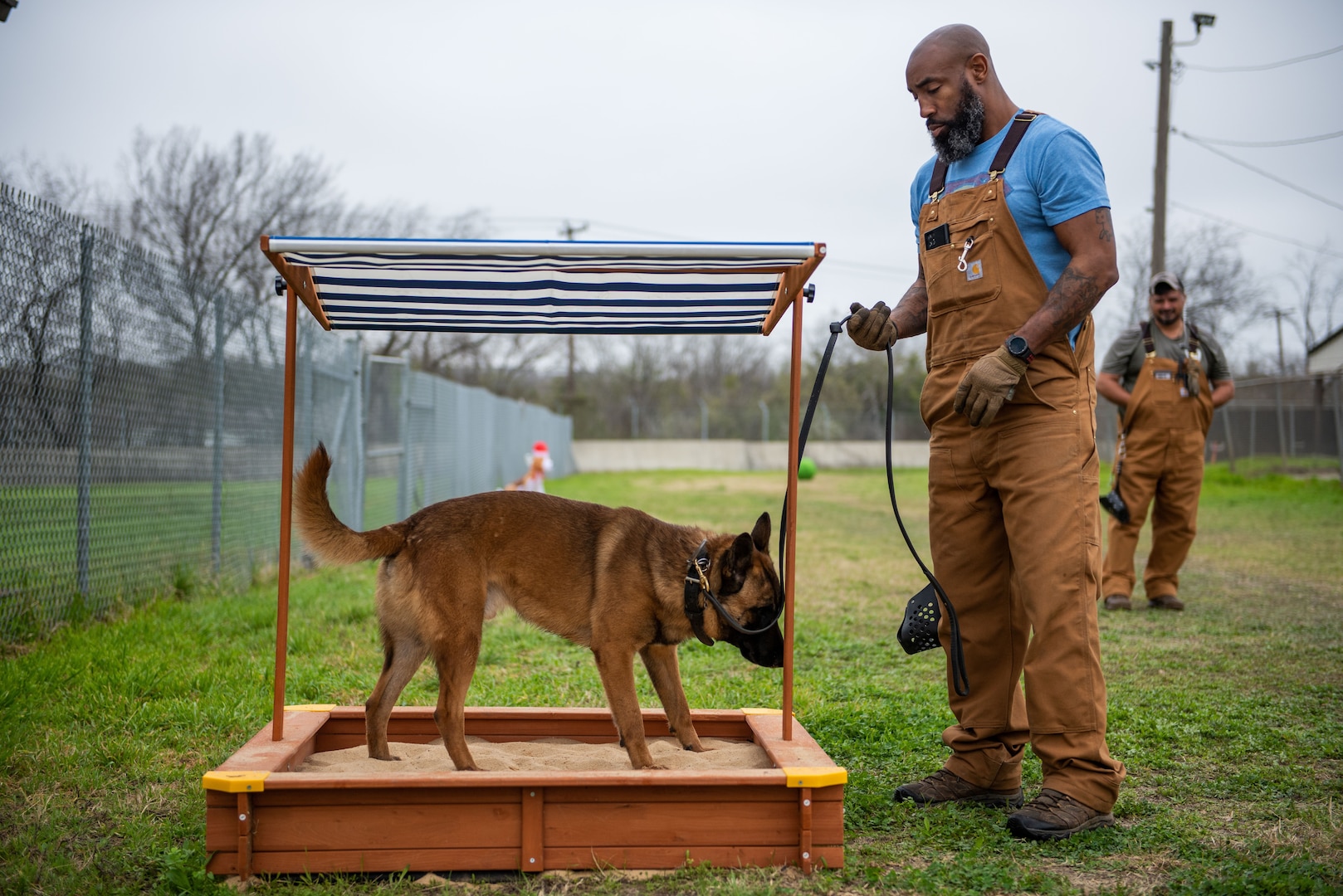Early puppy training for a easy learning experience.
Wiki Article
Top Canine Educating Tips for a Mannerly Buddy
Educating your pet dog to be a well-behaved friend requires a nuanced understanding of canine actions and the application of effective strategies. Vital commands such as "Sit," "Remain," and "Come" work as the foundation completely manners, while positive support methods can significantly enhance understanding. In addition, establishing a consistent routine and prioritizing early socialization are important elements that add to an unified partnership. The trip to a well-mannered family pet entails more than just these fundamentals; it requires a much deeper exploration of methods that can change your training technique.Understanding Pooch Behavior
Recognizing canine actions is essential for effective canine training and promoting a harmonious connection in between pet dogs and their proprietors. Pets are intricate animals, displaying a vast array of actions affected by genes, atmosphere, and socializing. Recognizing the underlying motivations for a pet's actions-- such as worry, enjoyment, or territorial instincts-- can substantially improve training effectiveness.Observing body language is an important facet of understanding canine habits. Tail setting, ear orientation, and posture can provide useful insights into a dog's emotional state. As an example, a wagging tail does not constantly indicate joy; it can likewise symbolize agitation or anxiousness. In addition, social interactions with other pet dogs and humans play a vital duty fit behavior. Dogs that experience favorable socialization are generally extra versatile and well-mannered.

Important Training Commands
Mastering important training commands is critical for developing effective communication between dogs and their owners. These commands act as the structure for a mannerly canine and can considerably enhance the total connection in between pet and proprietor."Keep" strengthens a pet's capability to continue to be in one position, promoting self-discipline. "Down" advises your pet dog to lie down, which can aid in managing thrilled behavior. "Heel" teaches your pet to walk together with you, fostering much better leash good manners.
Exercising these commands in different environments assists dogs generalise their training and respond suitably, regardless of interruptions. By investing time in teaching these important commands, owners can grow an unified and respectful connection with their canine friends, boosting both security and pleasure in day-to-day communications.
Positive Support Strategies
Positive reinforcement strategies are vital strategies in dog training that concentrate on rewarding desired habits to motivate their reoccurrence. This strategy leverages the all-natural learning procedures of pets, allowing them to associate particular actions with favorable results. By utilizing treats, appreciation, or playtime as rewards, trainers can properly encourage pet dogs to repeat the behaviors they intend to strengthen.To execute favorable reinforcement, it is important to supply benefits quickly after the wanted actions occurs. This aids the pet make a clear connection between their action and the reward. Consistency is likewise important; rewards must be provided every time the preferred actions is displayed during the preliminary training stage, progressively transitioning to a variable routine as the behavior comes to be extra trustworthy.
Furthermore, selecting the ideal kind of benefit is necessary. While deals with are usually efficient, some pets may respond far better to verbal appreciation or interactive play. Understanding your pet dog's choices can enhance the training experience. Eventually, positive reinforcement promotes a relying on partnership in between the pet dog and proprietor, making training a more delightful and efficient process that builds a mannerly friend.

Socializing Approaches
Efficient socializing approaches are essential for a canine's advancement, as they help establish an all-around and certain friend. Early direct exposure to various atmospheres, individuals, and other pets is necessary to protect against behavioral concerns in their adult years. Start this procedure during the crucial socialization duration, which commonly takes place in between three and fourteen weeks old.Present your puppy to varied stimuli, such as different surface areas, appears, and scents. Regulated experiences with various other canines and friendly human beings can foster positive organizations. Pup courses are an excellent source, giving organized atmospheres for social communication and learning basic commands.
Progressively increase the intricacy of socializing experiences. Take your pet dog to parks, pet-friendly stores, and public occasions, ensuring each encounter is favorable. Observe your canine's reactions and remove them from frustrating scenarios to avoid fear-based actions.
Utilize positive support to compensate tranquil and positive behavior during social communications. Remember, patience is vital; each pet has its Dog training Raleigh NC very own pace for readjusting to new experiences.
Uniformity and Routine
Establishing uniformity and routine in canine training is important for fostering a feeling of safety and understanding in your family pet. Canines grow on predictability; understanding what to expect assists them feel secure and reduces anxiousness.Including an organized regimen right into your training sessions additionally enhances your canine's discovering experience - Dog training near me. Arrange everyday training sessions at the same time daily, making sure that both you and your canine are mentally ready. Short, constant training sessions are a lot more efficient than long, infrequent ones; go for 5 to 10 mins of focused training numerous times a day
Additionally, uniformity should expand past formal training sessions. Include training into everyday tasks-- compensate your canine for resting prior to meals or strolling calmly on a leash. This enhances found out habits and develops a natural training environment. On the whole, a constant approach, coupled with a structured routine, lays the structure for a mannerly companion, advertising a harmonious connection between you and your pet.
Conclusion
Positive support strategies serve to motivate preferred habits, while early socialization prepares dogs for varied settings. By stressing these essential aspects, the bond between owner and dog strengthens, inevitably leading to an unified and satisfying partnership.Report this wiki page